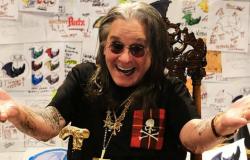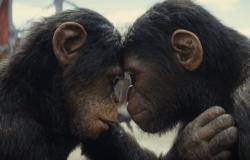VALENCIA. In 1991, Nevermind revolutionized the music industry in unexpected ways. The multinationals had sensed that the so-called underground or independent rock or university rock could be suitable to reach a broader audience, outside the niche in which artists like Dinosaur Jr or Redd Kross operated. As a concept and as a style, commercial rock had lost all semblance of naturalness when the eighties were about to become the nineties. The pose, the overacting, the formula ruled. In one of those gestures that implied criticism for having sold out, REM went to Warner. The marked melodic level of their songs made the band a global sales phenomenon. The case of Sonic Youth, which in 1990 ended up at the multinational Geffen, was different. In the music of New Yorkers, the formal structure of verse-chorus-verse did not rule. Still, the change of company helped his catchiest songs reach a wider audience. From there, several of the underground groups that Sonic Youth supported and worked with were captured by their new record label or other big brands. Geffen stayed with Nirvana and soon, Nirvana radically changed the role of rock in commercial music.
When they were played on the radio or appeared on MTV, Nirvana seemed like a real miracle. Their music sounded raw, angry, hurt. Later it would be known that Kurt Cobain actually disowned the sound that producer Butch Vig had given to the album that launched them to success, reproaching him for having taken away the viscerality of his music. The thing is, despite their understandable complaints, Nevermind still sounded impulsive, even though it was much more polished than bleachthe debut they published in 1989. When Nevermind surpassed Michael Jackson on the sales charts, the reading was as follows: the lifelong losers had infiltrated the mainstream: the strange, the different, the alternative was visible from a fame that was worldwide. The most sectarian fans accused the group of having allowed themselves to be domesticated by the industry. There are always those who prefer to safeguard the purity of creation forever, which is almost like being a parent and flatly refusing to let your small children never grow up. What pissed Kurt Cobain off most was that his success attracted an audience made up of people similar to those who bullied him in high school or looked down on him for not conforming to the accepted norms. “At this point, I have a request to make to our followers.“, he wrote in the notes of Incesticidea compilation with B-sides and songs not released on any album that Geffen published to satisfy the demand for material that caused Nevermind. “If any of you hate homosexuals, women or people of other races in one way or another, I ask you to do us a favor: leave us the fuck alone. Don’t come to our concerts and don’t buy our records”.
That Cobain had achieved such a level of success was a matter of poetic justice. It wasn’t a status he rejected, but the possibility of it undermining his credibility began to plague him more and more. To think that sharing fans with a group like Guns N’ Roses – who might seem to be similar to Nirvana but who were the exact opposite of them – gnawed at his conscience. And all that pressure, added to his poor health and the use of drugs to alleviate both the physical and mental pain he suffered, began to take its toll on the trio. Nirvana was already then a group that the press, whether musical, yellow or general, was constantly talking about, therefore, the appearance on the scene of Courtney Love did not help to stabilize the situation either. When they visited Valencia in July 1992 to give what would be their only concert here, the group’s situation was evident. Drummer Dave Grohl and bassist Krist Novoselic led a life independent of Cobain and his wife, who was in an advanced state of pregnancy. Love had an explosive personality and also great ambition. Neither of these two things was well received then if it came from a woman romantically linked to a great artist. What Kim Gordon wrote a few years ago in her autobiography The girl in the grouphelps clarify this issue without the risk of incurring misogyny: “It’s funny how much I think about Kurt. He was always so prone to kindness, with his vulnerable, passive side. One of the elements of his self-destructiveness was choosing Courtney to alienate himself from everyone around him, at the same time that fame alienated him from any type of community he might have.”.
To correct any erroneous conclusions regarding their intentions, Nirvana recorded their next album doing exactly the opposite of what they had done on their previous one. The tensions that already affected their surroundings did not affect the musical chemistry between Cobain, Novoselic and Grohl. They composed new songs, rescued old ones, and then looked for a purist-minded producer. Steve Albini, who even refused to receive royalties – something common in these cases – for his work on the album, made sure that In Utero It sounded like almost all the albums in which he participated as a producer: raw as if someone had decided to record the artist playing in his rehearsal room. Geffen did not like the results and the topics chosen to come out as single They were mixed by Scott Litt. Even so, In Utero brought fury back to the sound of Nirvana. When it was announced that the album was initially going to be titled after one of his songs, I Hate Myself And I Want To Die (I hate myself and I want to die), no one thought that that statement had any warning signs.
The last thing Nirvana recorded before their leader fell into an irreversible drift was a concert held at the end of 1993, MTV Unplugged in New York, where you could sense the paths along which Cobain would have evolved artistically if he had been able to survive himself. The concert, which would be published after the musician’s death, gave priority to his more lyrical side and what could have been the beginning of a new stage, whether in the company of Nirvana or alone. A few days before the end of the year, Bruce Pavitt, one of the founders of Sub Pop, the Seattle independent label where Nirvana debuted, saw them perform at Christmas. To Pavitt, who had seen them perform dozens of times, they seemed lifeless that night and were on autopilot. In February 1994, the trio began a tour that had to be canceled after Cobain overdosed on tranquilizers and champagne. The mixture plunged him into a coma from which he woke up twenty-four hours later. No one could say whether it was an accident or a premeditated act. He took his own life just a few weeks later, after having escaped from the rehabilitation center he had entered. Cobain’s sensitivity, the one that Kim Gordon was referring to, should not go unnoticed today, when visibility, equality and empathy are values that have acquired greater prominence in society. Thirty years later, it can be said that Kurt Cobain was a pioneer who fought so that rock – and the world – would not be a nest of retrogrades.






